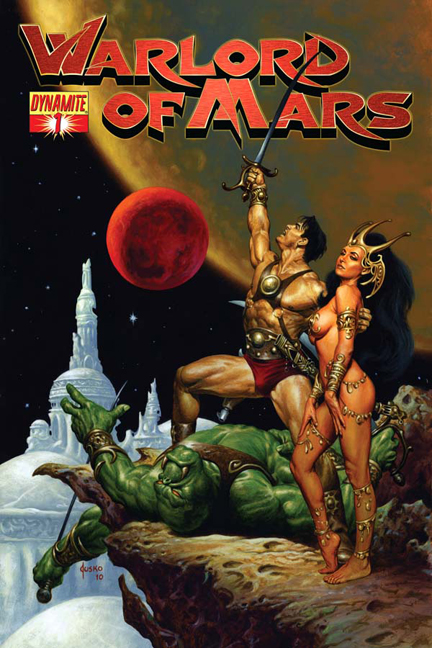
One of my character's jobs in Lusternia is being the Minister of Cultural Affairs for Serenwilde. This is the vaguest of all the ministry positions: there are almost no actually coded things that the minister has authority over, and the largest part of the job is about things that aren't officially supported. We get access to the commands to run our arena, and a command to submit theatrical productions for competition, and that's it. But it's taken as written that the ministry is also in charge of anything else that falls within the rubric of culture: festivals, rituals, contests, treasure hunts, fairs, etc.
These kinds of things are far more demanding and exhausting than people realize, since we have to do them ourselves with essentially no assistance from the code. However, they can be very rewarding. But it's always a challenge to get people interested. Lusternia is brimming over with other things you can be doing with your time, and most of them involve some measurable reward: gold, experience, and credits being the most notable. Plus there's plenty of ways that other people can decide what you're doing with your time -- for instance, by raiding. For most of Lusternia, raiding is an occasional interruption which is exhilirating and thus worth the interruption; however, if you happen to be currently on the bottom of the totem pole, and thus the game's whipping boy, those raids are both frequent and dispiriting.
And Serenwilde has been at the bottom now for two full years, fully 1/3 of the game's history, far longer than anyone else has ever been at the bottom. This has had a lot of effects, but the only one I want to talk about today is how it's eroded cultural activity, and what I think we need to do about it.
In its heyday, Serenwilde, as the leading beacon of culture in the game, had a
virtuous circle going on. Every cultural activity tended to reinforce the next one, and in three different ways.
- If you are a culture aide planning a festival, you're going to be doing tons more work than anyone realizes, enough to easily burn out your motivation to do more. However, all that gets turned around the moment the festival is a success, the moment people show up and seem to enjoy it. (If someone thinks to say 'thank you', a rare event, that's doubly so.) Every success makes aides more involved, more enthused, more likely to make more events, more interested in participating in the events others set up.
- The people of the commune get used to the idea that events can be fun and interesting, and that in part depends on them being attended -- many events only work if there's enough people participating. If they show up and have fun, they are likely to show up to the next one, and tell their friends.
- If you're the kind of player who likes this sort of thing, you'll be likely to move your character to Serenwilde, or create one there and then spend time on it, because that's where the good stuff is happening. That means there'll be even more people producing and participating in culture.
For all that, though, once things get worn down you get the opposite, a vicious circle. The key point here is that every time you try to produce something and its participation is very low, or it doesn't happen, this reinforces the things that make it unlikely the next one will work.
- The aides who are trying to create events get discouraged very very easily when no one bothers to show up after they poured hours of work and creativity into it. They probably won't try again, and might not even attend other events.
- It seems trivial but it's actually huge and pervasive: if people go to an event and find it doesn't end up happening or is dull due to lack of people, they're that much less likely to go to the next one, and they'll spread that attitude to others. This one is slippery because if you ask people about it they don't realize this in their own thoughts. Many people don't think of themselves as the type to be into culture but will still show up and participate and surprise themselves by having fun -- but only if everything's working perfectly. Others don't realize how much of an impact this attitude has on them, and fail to consider how many other things are available for them to spend their time on, and how thoroughly they can become jaded about culture.
- The longer Serenwilde is on the bottom, the more people find they're just not having fun, and think about doing something else. Those people who are into culture will end up making another character in some other nation where culture thrives (currently Hallifax), or just stop playing so much, or have their character leave Serenwilde. Thus eroding culture in Serenwilde in a way that is especially hard to recover from.
Those whose experience has been in the virtuous circle phase tend to give very pat and patronizingly simplistic answers to how to get culture moving. Just host more events. Get your aides to work harder. Offer prizes. Ask people what kind of events they want.
These are all good advice (if a bit obvious) when you're in the virtuous circle phase, and since they're all you need, people might get the idea that anyone who's dismissive of that solution is just making things too difficult. But what works when you're in a self-sustaining cycle, to keep that cycle from ebbing, is not going to work when you're in a self-destroying cycle.
Prizes don't work because the kind of person who's motivated by those things will generally find they have a lot of better ways of getting them quicker. Also, many people assume anything with a prize (generally a contest) will have other people who are more likely to win than them, so don't bother to enter.
And if you ask people what would get them to events, the answers you get are essentially useless. If you give people what they say they want, they don't come. I made this mistake for a long time. The simple fact is that the thing most likely to bring someone to a festival is not the festival itself, it's all their friends that are also going to it. Even combat-monsters go to, and enjoy, festivals when all their friends are going. And even culture-mavens don't bother to go if they have the pernicious feeling that it's not going to happen anyway.
So how do you turn the vicious circle virtuous again? I wish I had a definite answer. But I do have a plan, with two main parts.
1) Avoid big events: they just add to the general sense that these things never work out or aren't well attended enough to be fun, so they just do more and more damage. Instead, have lots of very small events which are designed specifically around one key detail: that they should work fine even if only two people participate.
The hope is that, once you run one of these, everyone involved -- even if that's only the organizer and two participants -- comes away feeling very slightly more positive about culture, and very slightly more likely to be part of future events. It's a very fragile advance. Every step forward like this can easily be undone by any failures; a single big event that fails to go off could reverse the progress of a dozen previous small events. We might have to go back to the start a number of times. But it has a chance of slowly, gradually, reversing the vicious circle. If we can pull off two-people events enough to start seeing four-people events, we can set the stage for eight-people events. Like any feedback loop, it starts with tiny gains on tiny amounts, but if you get far enough, exponential growth starts to run away on you.
2) To try to make that process go faster and be less likely to slip backwards, we can take advantage of a peculiar fact of Lusternia (and probably most MUDs): the "celebrity power" of the gods/administrators. People always react with denial to this idea, but it nevertheless is easily observed: if a player announces a treasure hunt, and then a god announces a treasure hunt, the latter will automatically get at least four times as much interest even if nothing else is different.
Why? Some of it is just the assumption that the gods can do what mortals can't do -- make things part of big world-shaking events (the kind of stuff that gets you in the Events posts and thus "famous" if you're involved), that they can make things where there's real coded effects and thus a smoother process, that the rewards could be greater, and many other things. But the biggest part is really just star power. They're exotic and interesting, rarely seen and obviously important. I'm just some shlub that's run a dozen festivals before.
I can't ask for one of the gods to actually create events for me, or even to offer support for an event, by coding something to make it work better. (At times I've tried, and always been denied, even when I bend over backwards to make sure that what I'm asking for will demand as little as possible from those poor overworked gods, and produce as much value as possible for the investment. On the other hand, New Celest is currently getting more support for their festivals than we've ever gotten in all ours put together, including some they didn't even ask for. Astonishgly and unprecedentedly, their most recent festival even got tied into an ongoing game-wide Event, and rolled into the Events post that resulted from it -- something that is causing everyone else, already envious of Celest having three over-active gods when most of us have at best one barely-active one, is practically aching with envy.)
But I can ask a god to offer tiny bits of support that will produce small, but still measurable, amounts of celebrity power. This is not a necessary element of my plan; the appearance of Lord Hoaracle in an event isn't going to make an event out of nothing. What it is is a force multiplier: it makes whatever I'm already doing significantly more impactful. (If he actually ran an event like what Celest had added onto its festival, that'd be a huge multiplier, but even having a cameo role in a small event would be notably helpful, I think.)
So as Serenwilde's culture minister I have documented this plan over the last few weeks, talked to my aides about it, even recruited new aides for it. I also talked to Serenwilde's only active god, Lord Hoaracle, and gotten his support for the celebrity power part of it, despite this running somewhat counter to his personality as a meditative recluse.
Unfortunately, none of it is going to happen. Because despite the fact that I was also talking to the Moonhart Circle, Serenwilde's ruling body, about it all along, while I was setting it up (with their implied consent) they were actually split between those who had very, very different ideas, and those who couldn't care less and still haven't bothered to speak up about any of it. It turns out that the only source I need or could hope to get for support, apart from Hoaracle, either offers no support or active opposition.
The most visible example is a festival plan I was handed in the form of an executive order: implement this. It was a perfect study in what I think we should not be doing: it's like every festival wrapped up in one monolithic overblown mass. It would tank and burn badly. Worse yet, the attitude reflected was that the Minister of Cultural Affairs is not in charge of setting a direction for culture and carrying it out; he is a mere functionary whose job is to do the "trivial" work of actually preparing and executing events. (Similar to those who are always contacting famous authors with ideas for books and expecting to get 50% of the credit and money, as if the idea is the hard part and the mere act of writing the book is comparatively trivial.) This plan was effectively withdrawn immediately, and apologies tendered, but they all missed the point: that this reflects a fundamental difference in what they think my job is, and what job I want to do.
Since I don't want to do the job they are expecting of me, I'm resigning, but with plans to take the job up again after there's been changes in the administration and we're back to a point where they're looking for the same from a Culture Minister as I want to give. To force myself into being what they want now would just burn me out and exhaust me. To waste my energy fighting with them to get them to see what I'm trying to do, and to elicit a reaction from the 2/3 of them that didn't even answer at all, would also drain me.
So my ideas will either be picked up by my successor, or more likely, forgotten until I get to try again. Or maybe if I'm really lucky, forces outside our control will change things and Serenwilde will be alive and vibrant again by time I take the job, and it'll be my turn to be glib about how easy it is to just go out and make events and people will show up.
 Reviews of this movie were highly mixed, and given that so much of the video game culture it riffs on is stuff with which I am not very familiar, I wasn't sure if I'd like it. I was afraid I might feel on the outside of a lot of inside jokes. And I bet that there were some -- just reading the trivia on IMDb suggested a couple of allusions I missed. And I was afraid the stylistic elements would just make me feel old. Plus there's the comic books (and I'm sure everyone who read them groaned about how wrong the movie is -- and is currently groaning at me for calling them "comic books").
Reviews of this movie were highly mixed, and given that so much of the video game culture it riffs on is stuff with which I am not very familiar, I wasn't sure if I'd like it. I was afraid I might feel on the outside of a lot of inside jokes. And I bet that there were some -- just reading the trivia on IMDb suggested a couple of allusions I missed. And I was afraid the stylistic elements would just make me feel old. Plus there's the comic books (and I'm sure everyone who read them groaned about how wrong the movie is -- and is currently groaning at me for calling them "comic books").





















 RealTime and RTC
RealTime and RTC Prism
Prism Uncreated
Uncreated Bloodweavers
Bloodweavers Foulspawner's Legacy
Foulspawner's Legacy Lusternia
Lusternia